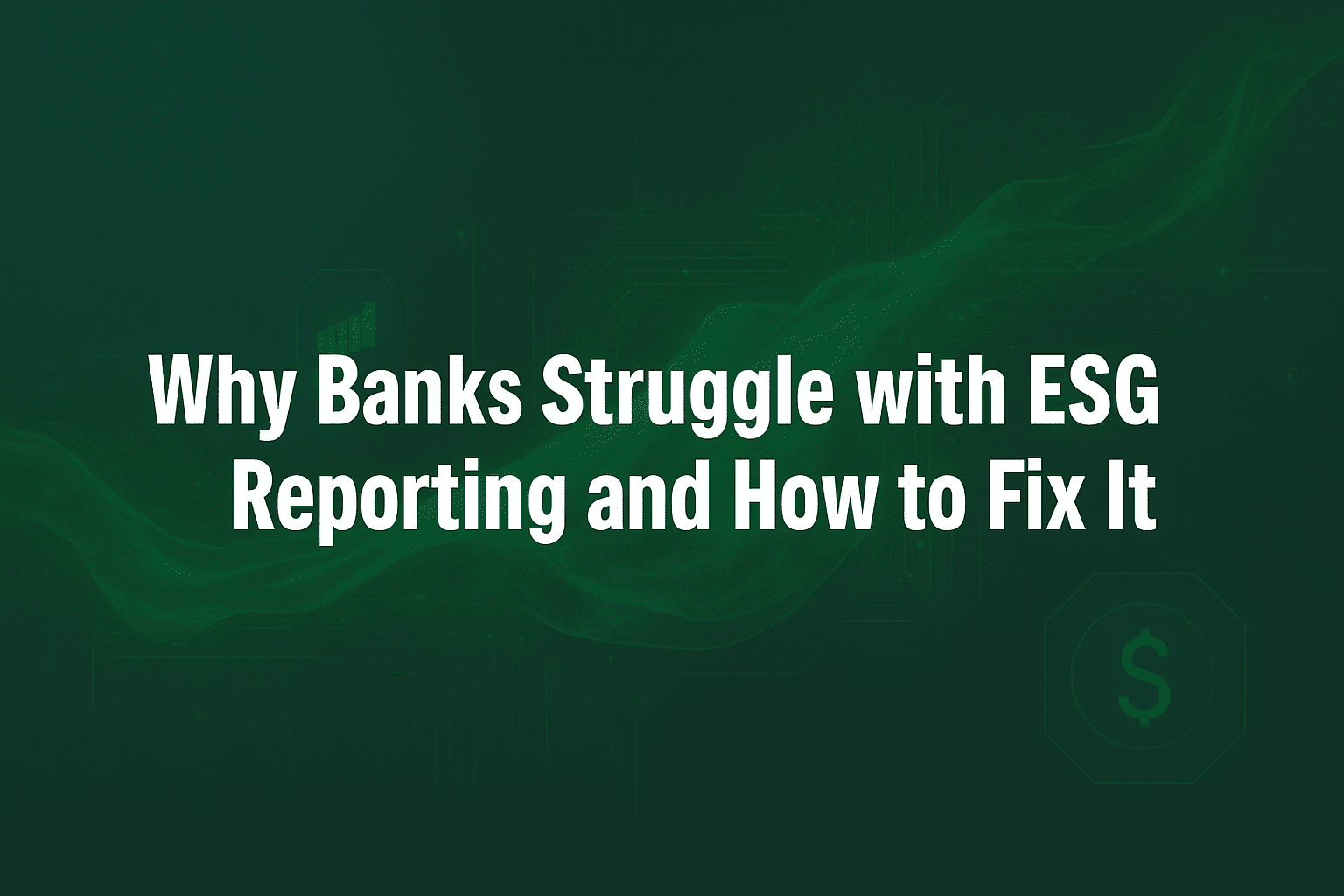For banks, ESG (Environmental, Social, and Governance) reporting has shifted from a voluntary exercise to a regulatory and investor-driven necessity. Frameworks such as the CBE guidelines, FRA disclosure rules, CSRD and SFDR in Europe, and global standards like GRI are no longer optional, they’re mandatory. Yet despite this urgency, many banks still find ESG reporting overwhelming, time-consuming, and costly.
So, why exactly is ESG reporting such a challenge for the financial sector?
1. Data Fragmentation Across Systems
Unlike financial data, ESG metrics are scattered across multiple departments: risk, lending, HR, operations, procurement, and even third-party suppliers. Most banks rely on manual Excel-based consolidation, which not only consumes months but also increases error risks. The lack of a single source of truth makes consistency nearly impossible.
2. Complex Regulatory Overlaps
Banks often operate across multiple geographies, which means complying with overlapping ESG frameworks. A bank in Cairo may need to generate reports for both CBE and FRA, while its EU operations must comply with CSRD and SFDR. Each framework has different disclosure formats, taxonomies, and validation rules. Navigating this patchwork manually drains compliance teams.
3. Difficulty in Tracking Financed Emissions
Unlike corporates, banks must calculate not only their operational footprint but also financed emissions, the carbon impact of their loans and investments. Estimating emissions across diverse portfolios, from SMEs to large corporates, requires access to high-quality client data, standardized methodologies (PCAF, GHG Protocol), and advanced calculation engines. Few banks are equipped to handle this in-house.
4. Resource and Cost Pressures
Traditional ESG reporting takes 3–6 months, involving consultants, auditors, and endless back-and-forth validations. This is not only costly but also unsustainable as regulators demand quarterly or even real-time disclosures. Smaller banks in particular struggle to maintain compliance without overwhelming their teams.
The Solution: ESG Reporting Automation with Planet Metric
This is where Planet Metric makes the difference. Our modular ESG platform is purpose-built for banks, transforming ESG reporting from a compliance burden into a strategic advantage.
With Planet Metric, banks can:
- Automate ESG data collection and validation across all departments and subsidiaries.
- Pre-map disclosures to frameworks like CBE, FRA, CSRD, SFDR, GRI, and ISSB.
- Generate regulator-ready reports in minutes, bilingual (Arabic/English) and fully traceable.
- Score every loan and portfolio by ESG alignment, enabling green finance strategies.
- Deploy flexibly on-premise, cloud, or hybrid, ensuring data security and compliance.
Instead of spending months reconciling spreadsheets, sustainability and compliance teams can focus on what matters most: building resilient portfolios, meeting investor expectations, and driving real climate impact.
With Planet Metric’s ESG reporting software, banks no longer have to choose between accuracy, speed, and compliance. They can have all three in a single platform.
Request a demo today to see how Planet Metric can cut your ESG reporting time from months to minutes https://planetmetric.com/request-demo/.



